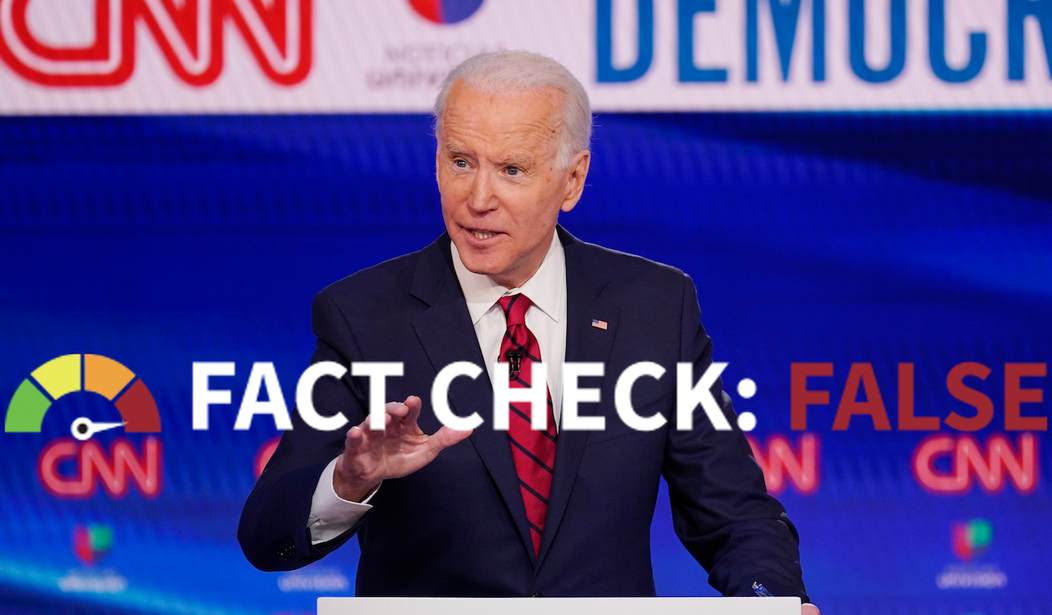On Monday, the Aspen Institute released a report from their Commission on Information Disorder (yes, that’s a real thing) in which they propose “structural changes” to “reduce information disorder”. A few of those suggestions are here:
This reads, at first glance, like an attempt to get in front of desired reforms of Section 230 and/or anticompetitive behavior
on the part of Big Tech by offering "mea culpa" recommendations. https://t.co/6jszpAIjN9— Capital Research (@capitalresearch) November 16, 2021
Any time an organization begins talking about creating new norms that carry consequences for violation, it’s a good idea to look into who that organization is. That’s where the Commission on Information Disorder and their purity of their agenda begins to fall apart.
A co-author of the Aspen Institute's report on disinformation hyped the Jussie Smollett hoax even after it was clear it was a hoax. A sample of his tweets. https://t.co/4R37w4l3Hn pic.twitter.com/bxI1W42QWg
— Chuck Ross (@ChuckRossDC) November 16, 2021
Well, that’s not ideal. Nor is the fact that the Commission is co-chaired by “award-winning journalist Katie Couric” — who is no stranger to disinformation, most recently selectively editing comments by SCOTUS Justice Ruth Bader Ginsburg to fit an anti-NFL narrative.
The Twitter executive responsible for blocking stories about Hunter Biden’s laptop is one of several advisers to the Aspen Institute’s disinformation commission.
Yoel Roth is one of several questionable advisers to Aspen’s Commission on Information Disorder, which on Monday released its much-anticipated report. Commission members include Katie Couric, who recently acknowledged that she edited comments on National Anthem protests out of a 2016 interview with Ruth Bader Ginsburg to preserve the justice’s reputation with liberals. Another commissioner, Rashad Robinson, helped fuel actor Jussie Smollett’s hate crime hoax.
…
Roth, the head of site integrity at Twitter, blocked access to an Oct. 14, 2020, New York Post article regarding emails from Hunter Biden’s abandoned laptop. Roth told the Federal Elections Commission he blocked the story in part because the intelligence community had briefed him that foreign governments might release hacked materials prior to the election. No evidence has emerged that Biden’s laptop was stolen or hacked, and Twitter founder Jack Dorsey has since acknowledged that the company should not have blocked links to the story.
The Aspen Commission report criticizes Twitter and other social media companies for failures to rein in disinformation but does not cite Twitter’s censorship of the Biden article.
It’s becoming so commonplace that industry fact-checkers are actually the most egregious abusers of fact there seems to be a new article detailing their abuses daily. One of the most amazing examples is this piece from BuzzFeed calling out Snopes’s co-founder for plagiarizing news articles while calling his work a fact-check. Using news reports to fact-check news reports does seem problematic.
David Mikkelson, the co-founder of the fact-checking website Snopes, has long presented himself as the arbiter of truth online, a bulwark in the fight against rumors and fake news. But he has been lying to the site’s tens of millions of readers: A BuzzFeed News investigation has found that between 2015 and 2019, Mikkelson wrote and published dozens of articles containing material plagiarized from news outlets such as the Guardian and the LA Times.
After inquiries from BuzzFeed News, Snopes conducted an internal review and confirmed that under a pseudonym, the Snopes byline, and his own name, Mikkelson wrote and published 54 articles with plagiarized material. The articles include such topics as same-sex marriage licenses and the death of musician David Bowie.
And while most Americans are beginning to understand the bias runs so deep it has the power to create friendly commissions to give the appearance of oversight, censorship still very much exists online; and likely will continue until Congress starts to get serious about their role in addressing anti-competitive practices by tech moguls in league with progressives. This Tuesday tweet from Senator Ron Johnson is just one of the latest examples of how “fact-checking” works in practice.
For the 5th time this year, @YouTube is censoring me from telling you the truth.
This time they don't want you to hear 3.5 hours of stories from doctors, scientists and the vaccine injured.
At least you can still watch it for yourself on @rumblevideohttps://t.co/IBOcjxZyu9
— Senator Ron Johnson (@SenRonJohnson) November 13, 2021
And now with the report from the Aspen Institute, the effort to make this version of “fact-checking” a best practice standard is in full swing. Congress would do well to not accept the Institute’s suggestions and work to find their own solutions to address censorship online.













Join the conversation as a VIP Member